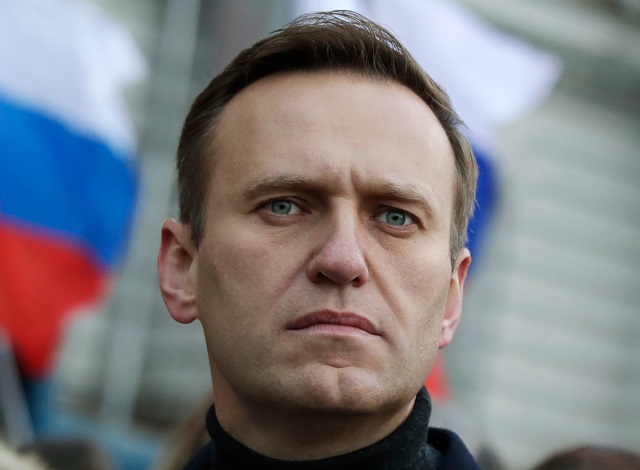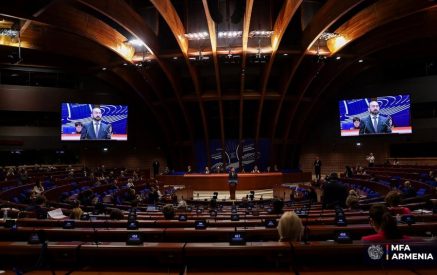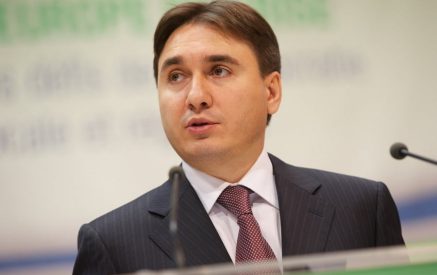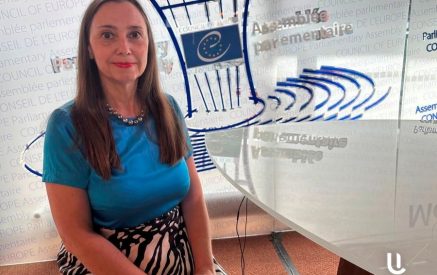The poisoning of Russian opposition figure Alexey Navalny was the focus of a PACE virtual parliamentary hearing livestreamed today – at which participants were told that Mr Navalny had been tracked by a Russian security service team, which included chemical weapons specialists, prior to his poisoning with a military neurotoxin originally developed in the Soviet Union.
The hearing, organised by PACE’s Committee on Legal Affairs and Human Rights as part of a report being prepared by Jacques Maire (France, ALDE), heard from Navalny’s chief of staff, who replaced him following his detention in Moscow, as well as the chief investigator of online sleuths Bellingcat, which has been investigating the event. The Russian Government was invited to send a representative.
Jacques Maire, the rapporteur on this topic, said many of the facts surrounding the poisoning were not contested, except for the crucial question – who poisoned Mr Navalny and when? He pointed to a hoax telephone call made by Mr Navalny, after his recovery, to one of the members of the Russian secret service team which tracked him, who “appeared to admit that the FSB team had poisoned Mr Navalny by applying Novichok to his under-garments”. The Russian authorities had not so far responded to this admission, Mr Maire said, nor explained the presence in the surveillance team of doctors and chemical weapons specialists. He said he had not yet come to any conclusions on the outstanding questions, adding: “The Russian authorities say they have no proof that a crime was committed in Russia, and refuse to open an inquiry. Unfortunately we are at an impasse.”
Leonid Volkov, Mr Navalny’s chief of staff, replacing him following his detention in Moscow, said he would have preferred that Mr Navalny was present at the hearing. “President Putin ordered the killing of Alexey Navalny, his main political opponent, poisoning him with the chemical agent Novichok,” he told the committee. Mr Navalny’s crime was that he had “dared to survive” – and not only survive but take part in the investigation into his own poisoning, Mr Volkov added. Navalny had allegedly violated the terms of his suspended sentence by not reporting to the penitentiary service in Moscow, yet even this was not grounds – under Russian law – for imprisonment. And the original verdict had been found by the European Court of Human Rights to be in effect fabricated, a ruling accepted by Russia. This should be grounds for the Court to demand Navalny’s immediate release, he said. “Right now, Alexey is unlawfully imprisoned, he is in the hands of the very people who poisoned him, and this of course puts his life in danger.” Mr Volkov said that change in Russia could not come from abroad, and that Russian citizens would have to stand and fight for their rights, which they would do. “But in this case,” he added, “I think there is a shared responsibility for Europe to help – and Russian citizens will be grateful for this help.”
Read also
Christo Grozev, who has led an investigation into the poisoning for open-source investigators Bellingcat, gave the committee a detailed presentation of his findings. He explained how his team had used phone data and metadata from the eight FSB officers identified as being involved in earlier poisonings, as well as open-source material, combined with their earlier finding that Russia was running “a clandestine chemical weapons programme”. By mapping Navalny’s movements to the movements of the FSB team, they had found a “striking, statistically-significant overlap” which indicated that he was being tracked by this team – which included doctors and chemical weapons experts – over a long period, including on the occasion of his poisoning in Tomsk. “One officer used his phone on night of 19-20 August. Just after midnight, metadata placed him within walking distance of the hotel from where Navalny would leave several hours later, just before his collapse.” Mr Grozen said their findings “point not only to a single attempt on the life of a particular person – Mr Navalny – but the existence of a structural unit within the FSB, staffed with experts in chemical weapons poisoning and doctors, whose apparent goal has been to try to assassinate Russians […]. So far we have been able to identify at least three successful poisonings, and we plan to publish the results of that in the next few days.”
Following the hearing, the committee requested that an urgent debate be held at the Assembly’s forthcoming “hybrid” session on the topic “The arrest and detention of Alexei Navalny in January 2021”. Mr Maire was also granted permission by the committee to make a visit to Russia in the near future in the framework of his report, which he should present to the Assembly in due course for a plenary debate.
PACE






















































